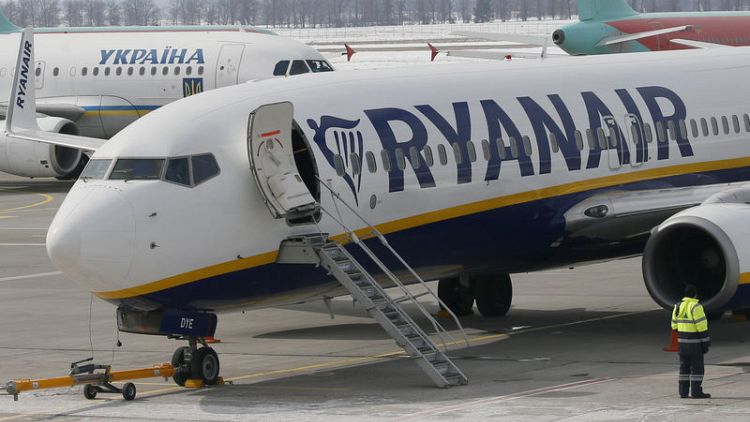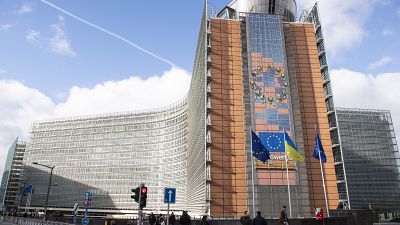By Padraic Halpin
DUBLIN (Reuters) - Higher fuel and staff costs, combined with flat fares, will knock profits at Ryanair <RYA.I> back from record levels, Europe's biggest low-cost airline said on Monday.
The Irish company bounced back from a rostering crisis that led it to cancel 20,000 flights in September to report a 10 percent rise in profit after tax to 1.45 billion euros (1.26 billion pounds) for the year ended March 31.
However, it forecast profit this financial year would fall back to 1.25-1.35 billion euros, slightly below analysts' average forecast of 1.37 billion, due in part to an expected 9 percent rise in unit costs. That would be the first fall in annual profit for five years.
The company said this was down to rising fuel costs and pay increases for staff that followed its rostering crisis.
Ryanair averted the threat of widespread Christmas strikes by unilaterally recognising unions in December for the first time in its 32-year history, but it has struggled to formalise relations in some countries.
After its Irish union threatened action on Saturday, CEO Michael O'Leary said that while he was not expecting strikes or disruptions, he could not rule them out and would face any down.
"If someone's going to be unreasonable and wants to question the model, then fine frankly, we'll have a strike," he said.
Ryanair described its profit forecast as being "on the pessimistic side of cautious," and said declining non-fuel unit costs would follow thereafter as efficiencies come through from plans to grow its fleet by 50 percent by 2024.
"Over the next 12 months we are putting in all the costs that we will need to be able grow the business to 200 million passengers," O'Leary said in a video presentation following quarterly results.
FLAT FARES
For the current financial year, Ryanair saw downward pressure on fares from above average capacity growth in Europe, although it predicted some upward pressure later in the year and O'Leary said he was much more optimistic about summer 2019.
At 0755 GMT, Ryanair shares, down 22 percent from an all-time high nine months ago before the first cancellations were announced but up 9 percent from mid-December, were up 1.5 percent at 15.73 euros, having reversed earlier losses.
"We see some downside risk to consensus estimates. However, the long-term fundamentals remain intact and attractive, despite the short-term pressures from negotiating and implementing union agreements for the first time," Liberum analyst Gerald Khoo wrote in a note.
The rise in 2017-18 profit was driven by a 9 percent growth in passenger numbers - despite Ryanair grounding 25 of its 400 aircraft from November - as well a cutting its costs, including fuel, by 1 percent year-on-year.
While the company expects to grow traffic by 7 percent to 139 million this financial year, up on the 138 million last forecast, and saw revenue from ancillary products outperforming that, it said that would not be enough to offset higher costs and its expectation for broadly flat fares over the full year.
Its downbeat tone was in contrast to rival EasyJet <EZJ.L>, Europe's second-biggest low-cost airline, which said last week that it expects profits to rise more than 30 percent for the year to end-September as it benefits from strong travel demand and the collapse of some smaller rivals.
Long a critic of Britain's handling of its departure from the European Union, O'Leary said Brexit continued to be "a fog of indecision."
He warned that if Britain left the EU without a deal, Ryanair would have to restrict the voting rights of all UK shareholders to ensure it remained majority EU-owned to comply with its licensing and flight rights.
(Reporting by Padraic Halpin; Editing by Mark Potter)



